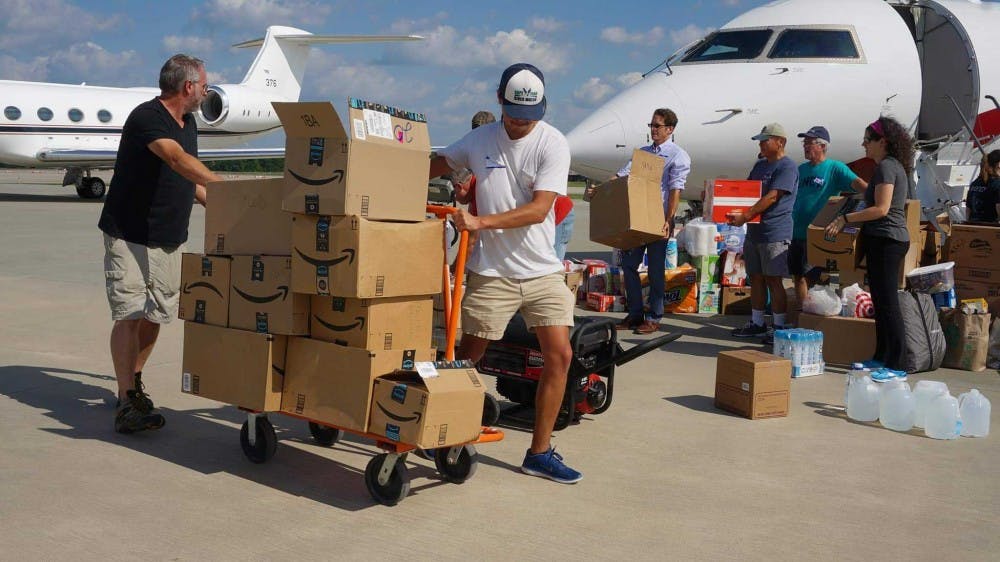Within mere minutes, volunteers from the Texas-based organization Operation Airdrop rushed to unload a semi-truck filled with bottled water. In under a half-hour, those same bottles were airborne from Raleigh-Durham International Airport bound toward a flooded Carteret County.
Founded a year ago in the aftermath of Hurricane Harvey, Operation Airdrop expanded into providing service for Hurricane Florence with the help of local Triangle grassroot coordinators, pilots and partnerships with dozens of local and national disaster-relief organizations.
The organization moves supplies from municipal airports to boats in the flooded regions of North Carolina, many of which are where trucks or cars cannot access safely.
Dan Benedix, a volunteer pilot, said the organization delivered 29,000 pounds of food and supplies across North Carolina on Tuesday and approximately 55,000 pounds Wednesday.
“In Lumberton they’re unloading the airplanes from the terminal onto boats, and those boats are going to peoples' houses that have been stranded without food or water for the last three or five days,” Benedix said.
Although other disaster-relief organizations can take days between receiving and delivering supplies, Benedix said there’s only a few hours between Operation Airdrop's intake of product and it arriving to the destination in need.
According to Benedix, RDU’s Airport Authority gave all Operation Airdrop planes a $1 per gallon discount on gas and allowed hundreds of volunteer planes to use the TAC Air terminal. The volunteer pilots are paying their own gas — up to $600 for a round trip to the coast.
“In fact, Cape Fear is offering (the pilots) fuel for free, and they’re refusing,” Benedix said.
Jil Christensen, a Raleigh-based Operation Airdrop coordinator, said, as an avid sailor, her memories of earlier devastation on the N.C. coast drove her charitable work.



